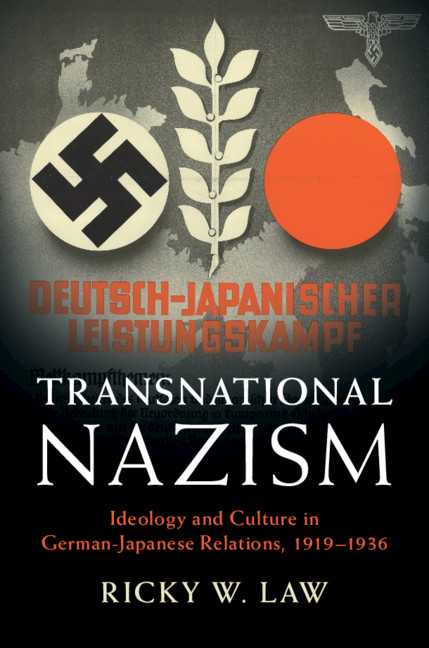Transnational Nazism
In 1936, Nazi Germany and militarist Japan built a partnership which culminated in the Tokyo-Berlin Axis. This study of interwar German-Japanese relations is the first to employ sources in both languages. Transnational Nazism was an ideological and cultural outlook that attracted non-Germans to become adherents of Hitler and National Socialism, and convinced German Nazis to identify with certain non-Aryans. Because of the distance between Germany and Japan, mass media was instrumental in shaping mutual perceptions and spreading transnational Nazism. This work surveys the two national media to examine the impact of transnational Nazism. When Hitler and the Nazi movement gained prominence, Japanese newspapers, lectures and pamphlets, nonfiction, and language textbooks transformed to promote the man and his party. Meanwhile, the ascendancy of Hitler and his regime created a niche for Japan in the Nazi worldview and Nazified newspapers, films, nonfiction, and voluntary associations.
- Uses both German and Japanese primary sources, many of which have been previously neglected
- Explains interwar German-Japanese rapprochement from ideological and cultural perspectives, and the role of the national media of both countries
- Offers an incisive look at how the seemingly narrow Nazi ideology gained broad prominence and popularity beyond its obvious core demographic
Reviews & endorsements
'Based on a mountain of evidence in three languages, Transnational Nazism offers a striking vision of interwar Japan-German ties as an ‘imagined community'. Far from a natural association of totalitarianism, the Anti-Comintern Pact relied on a decade and a half of willful cultural production by a wide array of civil society actors.' Frederick Dickinson, University of Pennsylvania
'… an important work that represents a major contribution to our understanding of the dynamics of the nascent relationship between Germany and Japan between 1919 and 1936. Scholars of transnational Asian-German studies will find much of interest here, as will those who focus on the origins of the Axis … Law makes a powerful and well-documented case for 'transnational Nazism' and its shaping influence on the ultimately disastrous political and military alliance between Germany and Japan.' Aaron D. Horton, German History
'Law persuasively argues that the Berlin-Tokyo Axis emerged as much from Japanese admiration for the National Socialist ideology as from any pragmatic military considerations … Recommended.' J. Kleiman, Choice
‘The book is excellent for its empirical discoveries …’ Ángel Alcalde, Contemporary European History
‘Transnational Nazism is strikingly well written and organized, …’ Miriam Kingsberg Kadia, H-Net Reviews
‘… this is an important and highly original contribution on the culture of interwar authoritarianism that deserves a wide readership.’ Erik Grimmer-Solem, German Historical Institute
Product details
July 2019Hardback
9781108474634
358 pages
235 × 158 × 22 mm
0.72kg
21 b/w illus.
Available
Table of Contents
- Introduction
- Part I. Transnational Nazism in Japan
- 1. Germany in newspapers
- 2. Germany in lectures and pamphlets
- 3. Germany in nonfiction
- 4. Germany in language textbooks
- Part II. Transnational Nazism in Germany
- 5. Japan in newspapers
- 6. Japan in films
- 7. Japan in nonfiction
- 8. Japan in voluntary associations
- Conclusion.










